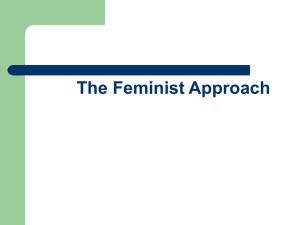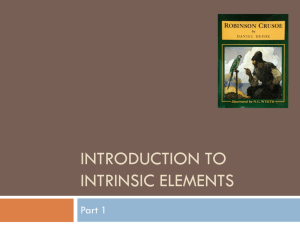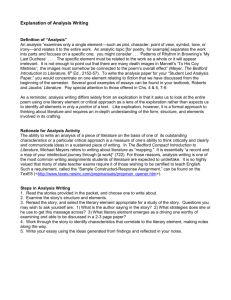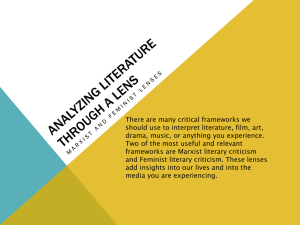Applying Literary Theory - Greenwich Public Schools
advertisement
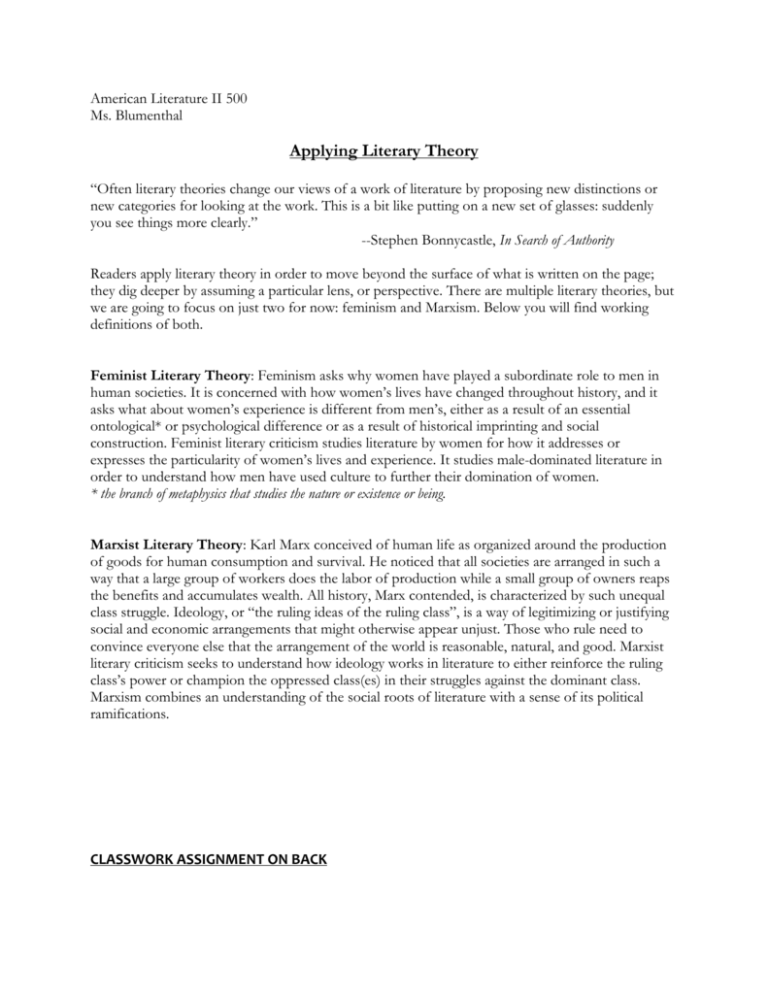
American Literature II 500 Ms. Blumenthal Applying Literary Theory “Often literary theories change our views of a work of literature by proposing new distinctions or new categories for looking at the work. This is a bit like putting on a new set of glasses: suddenly you see things more clearly.” --Stephen Bonnycastle, In Search of Authority Readers apply literary theory in order to move beyond the surface of what is written on the page; they dig deeper by assuming a particular lens, or perspective. There are multiple literary theories, but we are going to focus on just two for now: feminism and Marxism. Below you will find working definitions of both. Feminist Literary Theory: Feminism asks why women have played a subordinate role to men in human societies. It is concerned with how women’s lives have changed throughout history, and it asks what about women’s experience is different from men’s, either as a result of an essential ontological* or psychological difference or as a result of historical imprinting and social construction. Feminist literary criticism studies literature by women for how it addresses or expresses the particularity of women’s lives and experience. It studies male-dominated literature in order to understand how men have used culture to further their domination of women. * the branch of metaphysics that studies the nature or existence or being. Marxist Literary Theory: Karl Marx conceived of human life as organized around the production of goods for human consumption and survival. He noticed that all societies are arranged in such a way that a large group of workers does the labor of production while a small group of owners reaps the benefits and accumulates wealth. All history, Marx contended, is characterized by such unequal class struggle. Ideology, or “the ruling ideas of the ruling class”, is a way of legitimizing or justifying social and economic arrangements that might otherwise appear unjust. Those who rule need to convince everyone else that the arrangement of the world is reasonable, natural, and good. Marxist literary criticism seeks to understand how ideology works in literature to either reinforce the ruling class’s power or champion the oppressed class(es) in their struggles against the dominant class. Marxism combines an understanding of the social roots of literature with a sense of its political ramifications. CLASSWORK ASSIGNMENT ON BACK 1. Read “Daystar” by Rita Dove. Practice a feminist analysis of the poem by writing 3-5 sentences about each of the following: a. The protagonist as a character b. The protagonist’s situation c. The author’s intent in writing the piece 2. Read “You Can Have It” by Philip Levine. Practice a Marxist analysis of the poem by writing 3-5 sentences about each of the following: a. The protagonist as a character b. The protagonist’s situation c. The author’s intent in writing the piece

